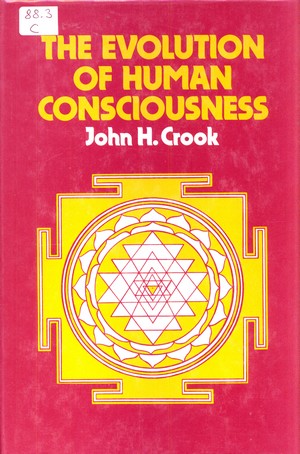Поиск :
Личный кабинет :
Электронный каталог: Crook, John Hurrell - The Evolution of Human Consciousness
Crook, John Hurrell - The Evolution of Human Consciousness

Доступно
1 из 1
1 из 1
Книга
Автор: Crook, John Hurrell
The Evolution of Human Consciousness
Издательство: Clarendon press, 1980 г.
ISBN 0-19-857174-7
Автор: Crook, John Hurrell
The Evolution of Human Consciousness
Издательство: Clarendon press, 1980 г.
ISBN 0-19-857174-7
Книга
88.3 C
Crook, John Hurrell.
The Evolution of Human Consciousness / John Hurrell Crook. – Oxford : Clarendon press, 1980. – 445 p. – ISBN 0-19-857174-7.
John Crook here considers the evolution of the most remarkable living process of all, the mind of man. He builds on three foundations. First he surveys the evidence bearing on the origins of human cognition, examining closely sources of human behaviour and social environment it has created, which in tern has moulded man/ He then treats these evolutionary sequences from the standpoint of sociobiological theory, showing how modern Darwinism can account for the roots of complex patterns of social interaction. In the second part of the book the author discusses the nature and origin of the distinctively human person, a self-aware organism capable of language, foresight,and education through the generations. Fundamental to understanding the "self-process" is the study of human partnership in many social settings. The theory of "reciprocal altruism" here provides the bases for understanding how human self-consciousness evolved and why it then led on to the abundant flowering of human cultures. In the final part of the book the author discusses behavioral development and aspects of therapy that can be used to help the human personality in its natural growth towards autonomy. The human consciousness operates in two modes: one concerned with itself as an agent in the world and with its standing jthers` eyes as well as in its own; and a second, perhaps more ancient, mode in which it is free from social concern and occupied in open awareness of a task or an experience. Zen psychology and praxis has much to offer the modern world, and the author examines the subjective empiricism of Buddhism in some depth. He concludes that insights from meditation and similar practices can play an important role in balancing the two modes of consciousness. The mind essentially creates meaning, and a deeper functional appreciation of the nature of mind will in time necessarily alter the culture in which we live.
ББК 88.3
ББК C
Общий = Общая психология
Из личных библиотек = Из библиотеки Обуховой Людмилы Филипповны
88.3 C
Crook, John Hurrell.
The Evolution of Human Consciousness / John Hurrell Crook. – Oxford : Clarendon press, 1980. – 445 p. – ISBN 0-19-857174-7.
John Crook here considers the evolution of the most remarkable living process of all, the mind of man. He builds on three foundations. First he surveys the evidence bearing on the origins of human cognition, examining closely sources of human behaviour and social environment it has created, which in tern has moulded man/ He then treats these evolutionary sequences from the standpoint of sociobiological theory, showing how modern Darwinism can account for the roots of complex patterns of social interaction. In the second part of the book the author discusses the nature and origin of the distinctively human person, a self-aware organism capable of language, foresight,and education through the generations. Fundamental to understanding the "self-process" is the study of human partnership in many social settings. The theory of "reciprocal altruism" here provides the bases for understanding how human self-consciousness evolved and why it then led on to the abundant flowering of human cultures. In the final part of the book the author discusses behavioral development and aspects of therapy that can be used to help the human personality in its natural growth towards autonomy. The human consciousness operates in two modes: one concerned with itself as an agent in the world and with its standing jthers` eyes as well as in its own; and a second, perhaps more ancient, mode in which it is free from social concern and occupied in open awareness of a task or an experience. Zen psychology and praxis has much to offer the modern world, and the author examines the subjective empiricism of Buddhism in some depth. He concludes that insights from meditation and similar practices can play an important role in balancing the two modes of consciousness. The mind essentially creates meaning, and a deeper functional appreciation of the nature of mind will in time necessarily alter the culture in which we live.
ББК 88.3
ББК C
Общий = Общая психология
Из личных библиотек = Из библиотеки Обуховой Людмилы Филипповны
| Филиал | Фонд | Всего | Доступно для выдачи |
|---|---|---|---|
| Сретенка | ЧЗ | 1 | 1 |

 Заказать
Заказать  На полку
На полку